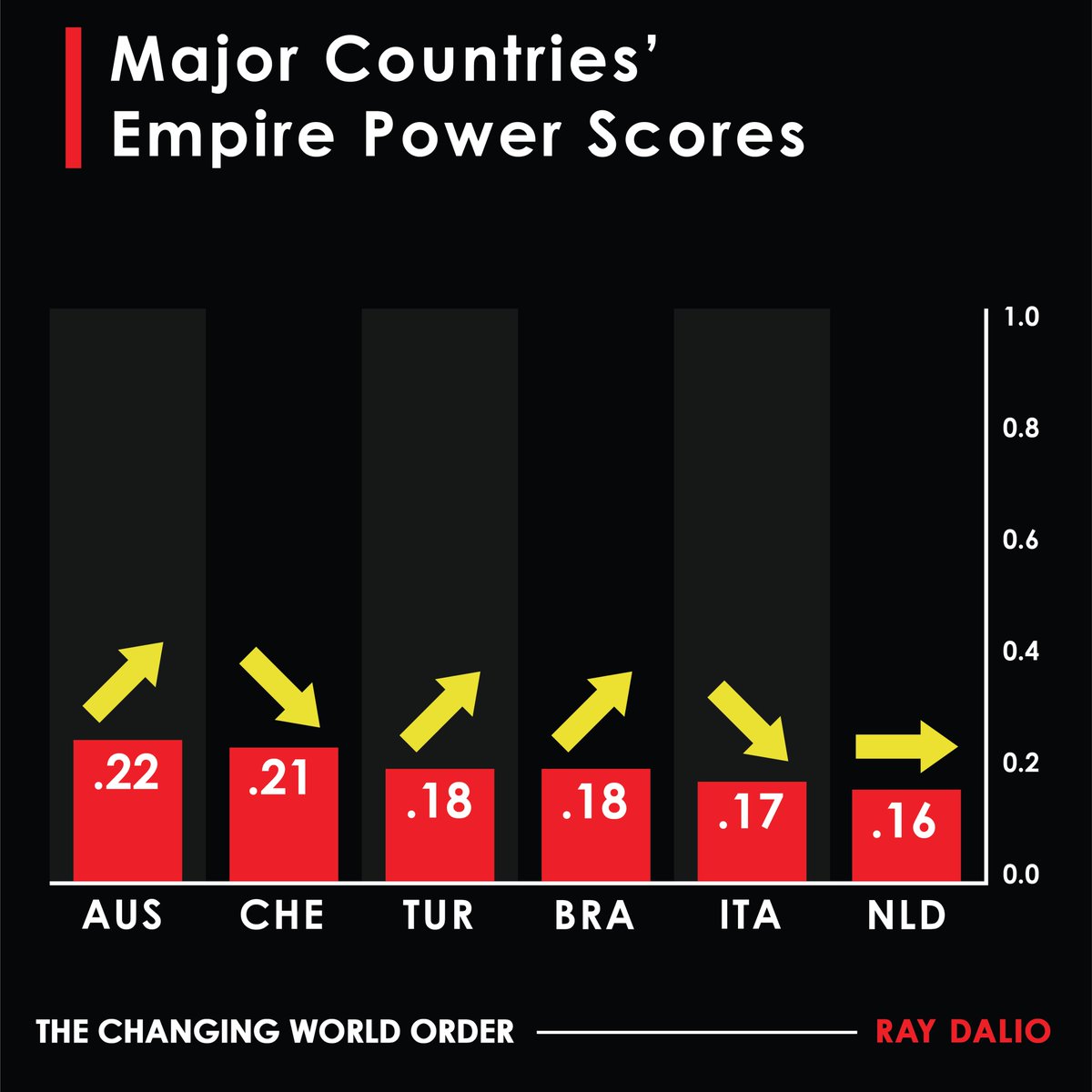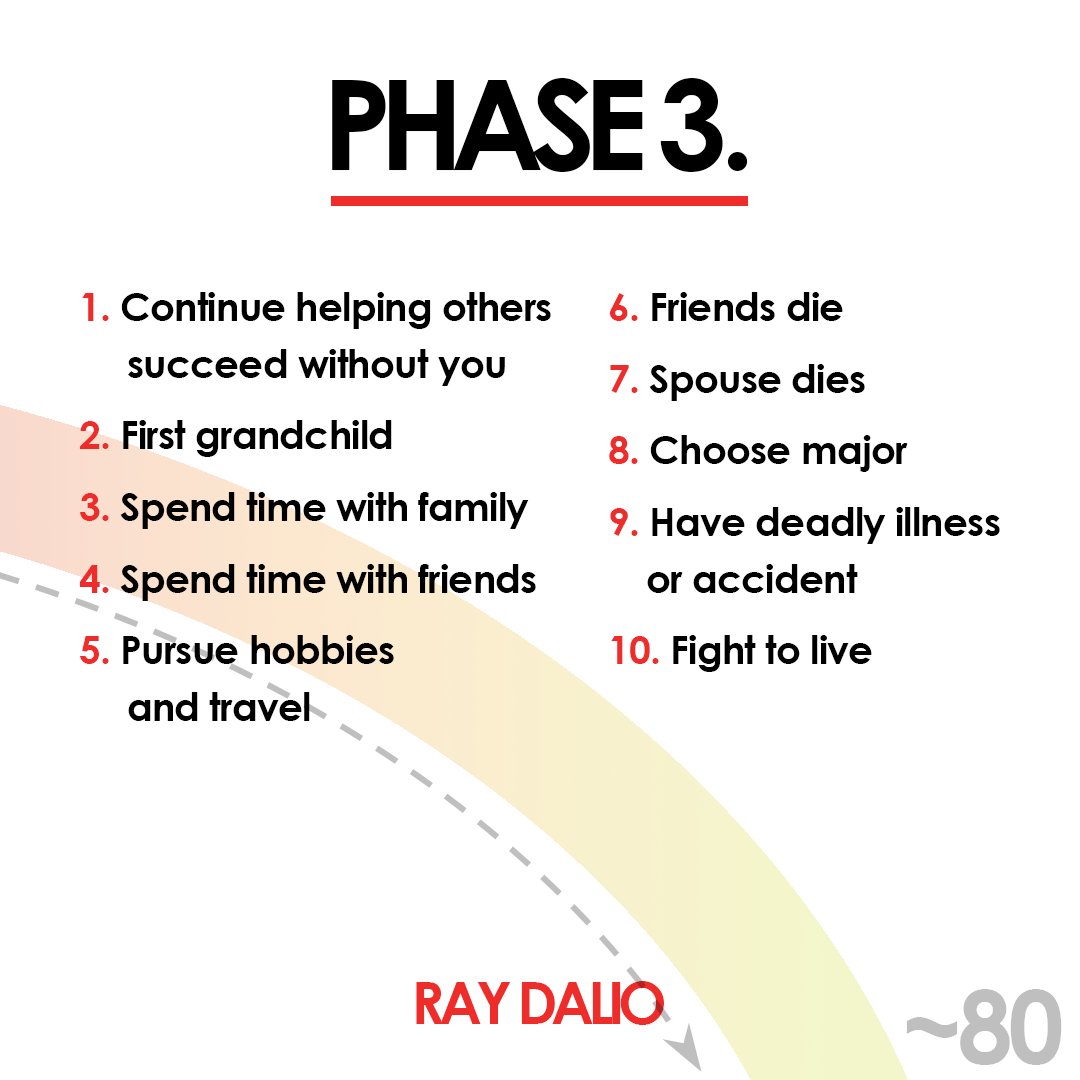
Over the last few years, three big things that hadn't happened in my lifetime prompted me to do the study that led me to publish Principles for Dealing with the Changing World Order. (1/6) 

First, countries didn't have enough money to pay their debts, even after lowering interest rates to zero. So, their central banks began printing lots of money to do so. (2/6)
Second, big internal conflicts emerged due to growing gaps in wealth and values. This showed up in political populism and polarization between the left, who want to redistribute wealth, and the right, who want to defend those holding the wealth. (3/6)
And third, increasing external conflict between a rising great power and the leading great power, as is now happening with China and the United States. (4/6)
So, I looked back. I saw that all these had happened together before many times and nearly always led to changing domestic and world orders. (5/6)
You can watch my free video on the Changing World Order to learn more and understand how the past can teach us about what’s happening now: #changingworldorder (6/6)
• • •
Missing some Tweet in this thread? You can try to
force a refresh















